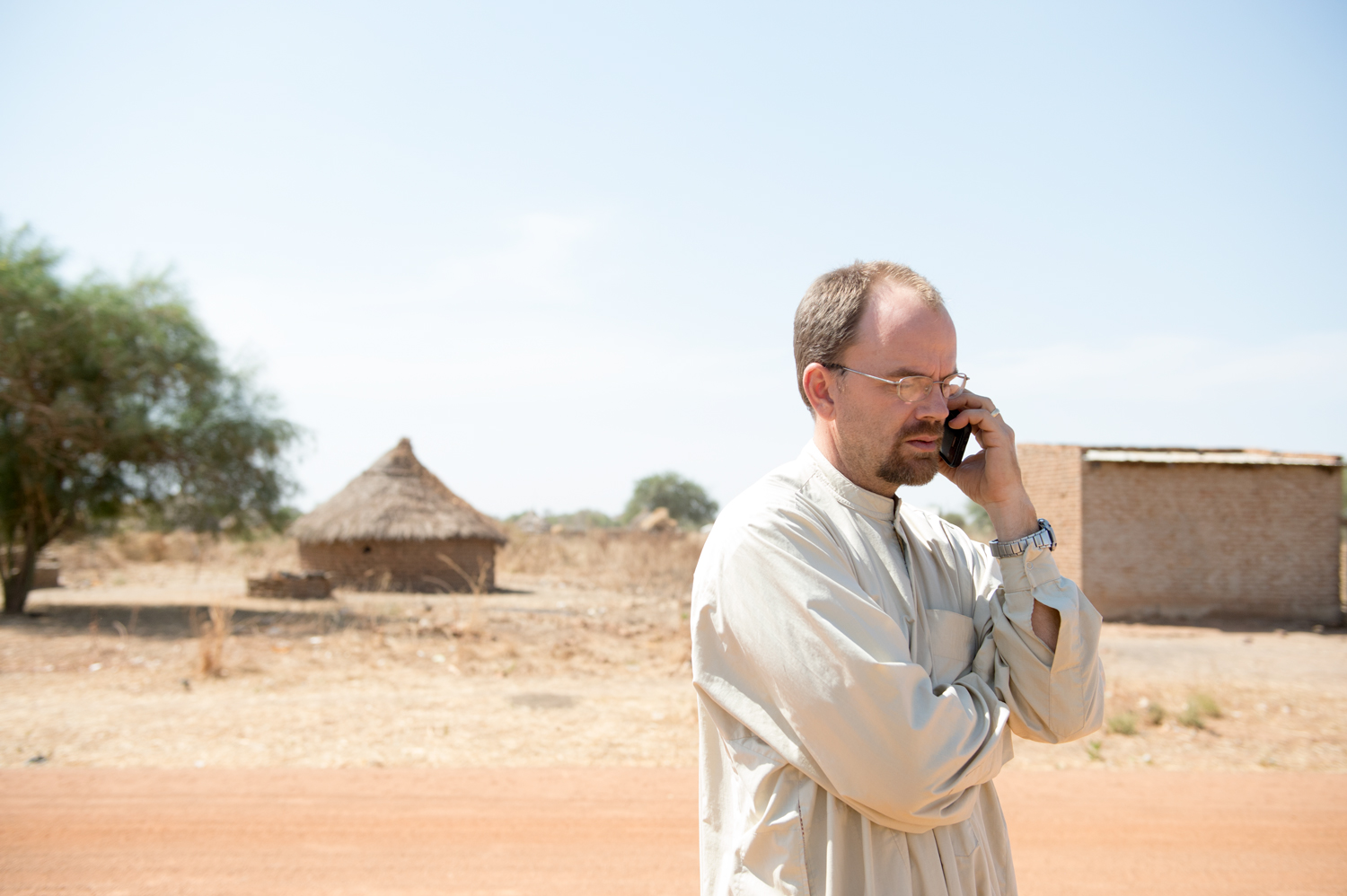
Missionary Life
7 Creative Ways for Missionaries to Connect with Supporters
August 3, 2016
by Anna Price

No missionary is sent out on their own; behind each one is a selfless group of churches and individuals who have mentored, prayed and given so the missionary could cross cultural barriers to share the gospel.
Because of the busy nature of ministry life, it can be hard for missionaries to connect with supporters while they serve on the field. Fortunately, with some creativity and a bit of technology, there are many ways you can stay connected with your supporters, even when you are thousands of miles away. Here are some favorites.
1. Display the Names and Faces of Your Support Team.
Look for unique ways to display the names and faces of your supporters where you can see them often.
Dave and Cheryl Jereb, TEAM missionaries in Zimbabwe, have pictures of each of their supporters in a photo album they often flip through. “Not only does it remind us to pray for them on a regular basis,” Cheryl says, “but on the days we struggle, [the album] reminds us we are not alone; we have a team behind us.”
If you can’t get pictures, writing names on a chalkboard or bulletin board can give you these reminders each time you see them.
2. Create a Facebook Group.
Due to privacy concerns, your personal Facebook page generally isn’t the best platform to discuss prayer requests or people in your ministry. A valuable alternative is to create a private Facebook group and invite supporters to join.
There, you can openly share heartfelt prayer requests and specific testimonies from your ministry. One TEAM worker in Mexico uses her Facebook group to galvanize prayer support before she interacts with the women she serves at a shelter. Afterward, she shares in real time how God is answering the prayers of her support team.
For more social media tips for missionaries, click here.
3. Pick up the phone!
If you’re able to while on the field, how special could it be to call one of your supporters and pray with them? This special touch can mean so much to beloved friends who miss hearing your voice regularly.
If it’s cost prohibitive to use an actual phone, Skype and Facebook Messenger both have great calling options available for free. The Jerebs use Facebook Messenger to call a few members of their support team each week. They aim to make phone contact with each supporter several times a year and report that these efforts have allowed them to maintain deep relationships with friends thousands of miles away.
4. Prioritize your newsletter and invite feedback.
We know, we know. The newsletter is often the last thing on your to-do list each month, but it is so important for connecting with the people who care about you and your ministry! Newsletters let your churches and supporters know what you are up to and how they can pray for you.
For inspiration, check out these posts on what to include in your newsletter and how to make it look great.
TIP: Encourage your supporters to write back. It can be discouraging when no one lets you know they’ve read your newsletter. To avoid this, try to think of creative ways to invite feedback from readers, such as asking a question each month (i.e. What are your plans for the summer? What is your favorite food at Thanksgiving? How can we pray for you this month?).
5. Invite your kids into the process.
Why not invite your kids (either your own or, if applicable and appropriate, even kids you work with in your ministry) to draw a picture or write a note to your supporters? Sending that along lets your supporters know the whole family and/or ministry is appreciative of what they are doing to serve the nations.
For more, read this post with actionable ways to involve your kids in missions.
6. Share a piece of your ministry area.
You have unique insight into a culture that might be unfamiliar to your supporters. Give greater context to your ministry by sharing cultural tidbits and artifacts with your partners.
One TEAM missionary to Spain likes to thank her supporters by going down to her local olive oil refinery and picking up bottles to take to North America for those who are praying for and supporting her ministry.
Another missionary lives in Forli, an area of Italy known for its pottery, and often buys handmade ceramic magnets to give to supporters.
Sharing a piece of your culture is a great way to thank your supporters, and can also serve as a reminder for them to pray for the work you are doing on the field.
7. Go old school.
Handwritten notes aren’t just for your grandmother! Taking the time to write out what a supporter means to you and your ministry can be a meaningful gesture for those who are standing behind you and your work.
The above ideas are just a few TEAM missionaries have used to connect with supporters, but there are many more. If you give to or pray for missionaries, what is a way your missionary has blessed you while they were overseas? If you are a missionary, what is one way you like to stay in touch with your supporters? Let us know in the comments below.

